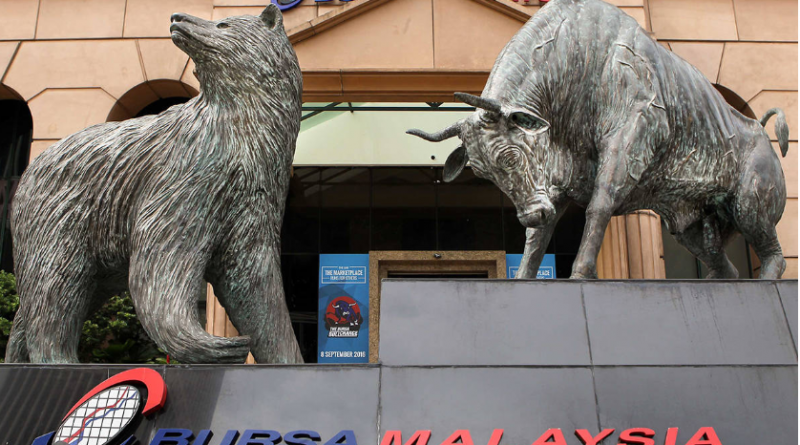Bursa may give more time to firms to submit PN17/GN3 regularisation plan
KUALA LUMPUR (Aug 6): Bursa Malaysia Bhd will consider granting further extension of time for companies, which have triggered the criteria of Practice Note 17 (PN17) and Guidance Note 3 (GN3) from Jan 2, 2019 to Dec 31, 2020, to enable them to submit their regularisation plan to the Securities Commission Malaysia (SC) or the exchange after the 24-month grace period.
Nevertheless, this would only be done on a case-by-case basis and based on the requirements made by the companies.
The local stock exchange operator said it is cognisant that the Covid-19 pandemic would have a material impact on the efforts and ability of PN17/GN3 companies to regularise their financial condition.
“As such, we introduced a relief measure on March 26, 2020, whereby companies that trigger any of the criteria of PN17/GN3 between Jan 2, 2019 and Dec 31, 2020 are accorded a longer period of 24 months, instead of the existing 12 months, to submit their regularisation plan to the SC or the exchange.
“The exchange will consider granting further extension of time (after the 24 months) if required on a case-by-case basis, taking into account the justifications and material developments at that point in time,” Bursa told Bernama in an email interview recently.
Meanwhile, additional relief measures were also announced on April 16, 2020, whereby Bursa said companies that trigger any of the suspended criteria between April 17, 2020 and June 30, 2021 would not be classified as a PN17 or GN3 company for 12 months.
This aims to provide greater flexibility to the affected listed companies to focus on sustaining their businesses and operations and regularise their financial condition thereon.
“After the 12-month period, the affected listed companies will be required to reassess their condition to see if it continues to trigger any of the criteria of PN17 or GN3.
“If it continues to trigger any of the said criteria, they will be classified as PN17 or GN3 [companies] and will be required to comply with the obligations,” it said.
PN17 classification involves financially distressed companies listed on Bursa’s Main Market, while GN3 status refers to those listed on the ACE Market.
Six companies triggered PN17/GN3 criteria
Six companies, which account for 0.67% of total listed companies on Bursa, had triggered the suspended criteria of PN17 and GN3 as at July 28, 2020.
This includes five Main Market-listed companies and one ACE Market-listed firm, according to Bursa.
“Apart from AirAsia Group Bhd, the other four Main Market companies that had triggered the suspended criteria of PN17 as at April 17, 2020 were GETS Global Bhd, Ikhmas Jaya Group Bhd, Khee San Bhd and Cymao Holdings Bhd, while Bahvest Resources Bhd had triggered the suspended criteria of GN3,” it said.
However, Bursa said these companies would not be classified as PN17/GN3 companies, and would not be required to comply with the obligations under Paragraph/Rule 8.04 of PN17 or GN3 of the Listing Requirements for 12 months, following the relief measures announced by the exchange on April 16, 2020.
For the record, Bursa said 23 companies had been classified under PN17 and three companies under GN3 as at July 28, 2020, representing 2.89% of the total companies listed on the local exchange during the period.
‘Relief measures will uplift companies from PN17/GN3 status’
Commenting on Bursa’s relief measures, Bank Islam Malaysia Bhd economist Adam Mohamed Rahim said they would help companies to be uplifted from PN17/GN3 status, thus enabling them to increase the threshold for new issues of securities to facilitate and expedite fundraising.
Under one of the relief measures announced on April 16, 2020, a listed issuer can now increase the general mandate threshold for new issues of securities from the existing 10% to not more than 20% of the total number of issued shares.
However, Adam reckoned that should Covid-19 remain unresolved, cash preservation is one of the key steps that companies should take to be uplifted from PN17/GN3 status.
He said it could also be done via prudent management of capital expenditure, especially in regard to expansion plans.
“We do not discount the possibility of more companies falling into such status [by year end], especially companies that depend on the global supply chain amid the resurgence of Covid-19 cases worldwide which may prompt another series of lockdowns.
“Sectors that are vulnerable include manufacturing that relies on exports and the global supply chain,” he said, advising companies to manage their working capital more prudently and perhaps restructure their debt with financial institutions if it is over-geared.
Source: TheEdgeMarkets

